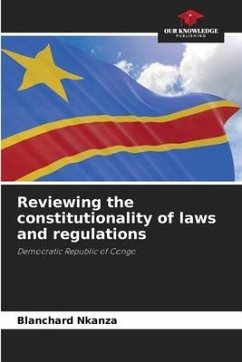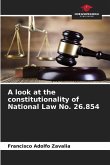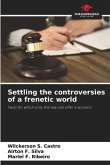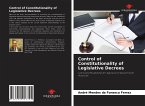The African states, and the DRC in particular, in their era of democratisation, are trying to configure their institutions to the imperatives of a system that we would like to see under the rule of law. And a democratic system requires a balance between the power of the majority - as opposed to the tyranny of the majority - and respect for fundamental rights. This is why constitutionality review is seen as a means of checks and balances. Because it prevents the tyranny of the majority by Parliament, establishes a real superiority of the constitution and thus leads to a state governed by the rule of law. For it has to be said that "the law (and to a certain extent regulations) can only be considered as an expression of the general will if they respect the constitution". The Constitutional Court, and by ricochet the control of constitutionality, appears then to be the standard of a true democracy. In this book, we have attempted to show what constitutional review has been or is like in the various republics of the DRC, so as to enable each reader to situate the DRC in terms of the rule of law or, better still, democracy.
Bitte wählen Sie Ihr Anliegen aus.
Rechnungen
Retourenschein anfordern
Bestellstatus
Storno








